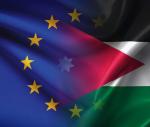You are here
Remembering Edward Said 15 years on: the public intellectual and man
Oct 06,2018 - Last updated at Oct 06,2018
The year 1998 was the first time I had ever heard of Edward Said. I was 14 years of age, visiting my relatives in the West Bank when news spread that Edward Said was delivering the keynote speech at Birzeit University near Ramallah as part of its fifth annual international conference: Landscape Perspectives on Palestine. Ignorant of whom Said was at the time, I went olive-tasting instead. A few years after the Oslo Accords, Edward Said presented his BBC film, In Search of Palestine, featuring, as the subtitle suggests, his return home in 1998, too. The next time I encountered Edward Said was in 2015, 12 years after his death, when I was in Ramallah, aged 31. The latter’s municipality had commemorated Said by naming one of its streets after him. We had multiple dialogues on end, entertained by echoes of oud coming from Darwish Museum over the hill.
The first time my eyes laid sight on the name “Edward Said” was in England on a reading list when I was a postgraduate student of World Literatures in 2005. It was the only name with an Arab family root. The name rang a bell, thanks to an accidental visit to my relatives near Ramallah. However, Edward Said was never mentioned in school or university when I was growing up in the Middle East. I was then overwhelmed because of two reasons. One: I was ashamed because such an intellectual was never celebrated enough in the Arab world. Two: I was thrilled because he wrote back to the coloniser, rewrote and debunked colonial discourse and now he was disrupting this piece of paper between my hands amongst a plethora of European and American theorists. I was 20 years of age; and the extent of my knowledge on colonialism then did not go beyond the dark green helmet of an Israeli soldier. Now, with the might of Said’s books, it went as far back as Napoleon Bonaparte’s Egyptian expedition in the 1700s. Reading Said I realised I too have a voice that must be heard, I too have a story that must be shared. I remember vividly how I finished my Master’s and decided not to pursue a PhD straightway. Instead, I hurried back to the Middle East, burdened by patriotic fallacy, imperial fantasy and a pathetic need to belong. I had to share Edward’s writings, to tell students that you too can and have a voice. Unfortunately, master degree holders are not trusted with advanced literary courses on post-colonial literature and literary criticism. So I opted for workshops on orientalism whenever I could. Frustrated by economic instability, however, and the lack of libraries and public toilets and interest, I went back to England to pursue and further deploy what Edward Said had once started: postcolonialism.
Edward Said was an exile who saw things “from outside the box”. His model of exile “promotes innovation and experiment as opposed to [the] authoritatively status quo” (1994). Said’s travelling theories emphasise his usage of the term and figure of the exile to construct a worldly, cosmopolitan set of linked affiliations that can destabilise nationalist and/or religious identities. Said’s travelling theory essentially implies that a theory comes from somewhere and is marked by places of origin. Theory (looking and viewing in Greek) is a product of displacement and of exile and comparison. The language and words of the displaced, their narratives and stories debunk representations and other stereotypical images; they debunk, in Said’s words, the “orientalist vision”, that vision that is “fixed, laid out, boxed in, imprisoned”. In other words, the immigrant and displaced writer dissembles the “western imaginative geography” that is based on the orientalist vision whose “self-containing, self-reinforcing character [is] of a closed system” (2003).
Said identified politically as a Palestinian. His work is exemplary of the current and ongoing struggle for self-determination under Israeli colonialism and the enduring fight in preserving memory and thus the nation. Said painted a picture of where the uprooted goes after the last sky. His first unofficial memoir, prior to Out of Place, is After the Last Sky. In the latter, he comments on the lives of scattered masses of Palestinian families in the Middle East and its refugee camps. In this book, he presents himself as part of a Palestinian society as opposed to presenting his personal and individual accounts of being displaced as he does in Out of Place. Said himself confesses in a conversation with Salman Rushdie that he found himself “writing [After the Last Sky] from the point of view of someone who had at last managed to connect the part that was professor of English and the part that lived, in a small way, the life of Palestine” (1991). Said also seems to personally identify with the discontinuity of Palestinians across the Middle East in those pictures. In After The Last Sky, Said’s private and public stories intersect: that is, his larger public image as a professor and his small private life and memories as a Palestinian.
Said internationalised local issues of the silenced and marginalised in the Arab world as they intersect with other national struggles elsewhere. This is evident for example in Homi Bhabha’s recognition of other displaced writers in the acknowledgement section of his The Location of Culture, where he draws attention to and thanks Said for his “oeuvre and critical terrain and intellectual project”. Gayatri Spivak complements Said’s work on silent and passive voices. Edward Said was a Christian who fought against the misrepresentation of Islam in his book Covering Islam. He fought for the specificity of identity in a “glocal” world, without falling into the ghettos of nationalism. He argues against the “free-floating intellectual”, the traveller as cynical judge as opposed to guest. “No one is free of attachments and sentiments of course”, Said confirms (1994). He suggests the true traveller should rather take after Marco Polo, not Robinson Crusoe.
In conversation with Edward Said, Daniel Barenboim, the Argentinian-Jewish musician, avers that he feels “at home” whenever he plays the piano or whenever he travels with his orchestra. Thus, he carries home within him, just as Said did, in the idea of Jerusalem which was also nurtured through nostalgia. Both of their experiences are full of the title of the book compiling their dialogue: Parallels and Paradoxes. Said differentiates between the Palestinian endless exilic displacements and the conventionally perceived concept of a diaspora. Rushdie sees that Said’s viewpoint is distinct in the fact that “in the West, everyone has come to think of exile as a primarily literary and bourgeois state. Exiles appear to have chosen a middle-class situation in which greater thoughts can be thought. In the case of the Palestinians, however, exile is a mass phenomenon: it is the mass that is exiled and not just the bourgeoisie” (1991).
Edward Said did not believe the individual is one thing. He rather invites one to “transform oneself into something different than it is to keep insisting on the virtues of being American in the ideological sense” (1999). He was contrapuntal. The West-Eastern Divan Orchestra he established with Barenboim and named after the alleged father of world literature, Goethe, is evident of such worldliness.
Said’s personal story traverses with the public, and his humanity transcends all geopolitical frontiers. Along with Oslo (September 13), Black September, Sabra and Shatila (September 14-15), the endorsement of the Balfour Declaration by US Congress on September 21 and the Al Aqsa second Intifada (September 28), September no longer rings bells of one’s birthday anymore. It rather comes as a reminder of the necessity for us to write and share and voice and aspire after the legacy of the likes of Edward Said (September 25: the public intellectual and man.
The writer is author at Palgrave Macmillan and an assistant professor in post-colonial and English literature at the American University of Madaba, Jordan. He contributed this article to The Jordan Times













